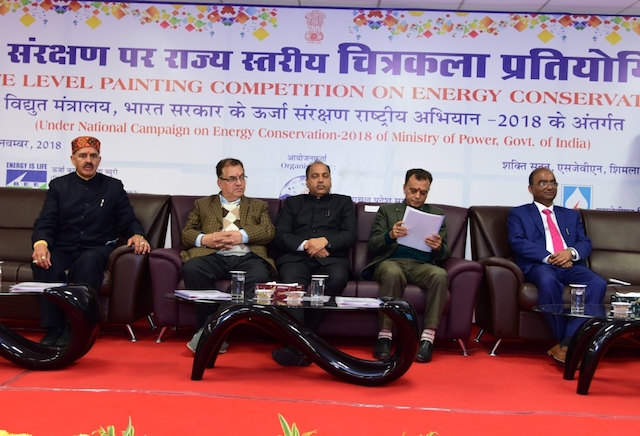Shimla: Having secured a highly coveted 780 MW hydropower project in Satluj basin, an elated Mr Nand Lal Sharma, CMD of SJVNL said that it was only the public sector which could successfully execute long gestation projects as the private sector had failed the country in hydropower generation.
After weighing options between allotting the project to NTPC, NHPC and SJVNL, it was only last month that the Himachal cabinet decided to allot the contentious Jangi-Thopan-Powari project to SJVNL.
First allotted as a two stage 960 MW project to Brakel Corporation, a Dutch based joint venture company, in 2006 when hydropower projects had been thrown open to the private sector.
The project got stalled soon after as its allotment was fiercely contest in the courts by Anil Ambani Reliance group and Adani to a point that the contesting groups lost interest in hydropower projects and the state government terminated the agreements that had been signed.

“The private sector’s 1994-2006 experiment,” said Sharma at a function where chief minister Jairam Thakur was present, “for tapping the nation’s vast hydropower potential has failed. The country has been left behind in harnessing this safe and reliable power source.”
Starting out as a single project company in 1988, Sharma said that Himachal Pradesh (HP)share in SJVNL joint venture company had increased from 25% to 26.8% after a stake sale and buyback of the Central Government’s share in the company.
Currently operating 6 projects, which includes 1912 MW of hydropower plants, two wind power and solar power plants each and one Indo-Nepal transmission line, SJVNL has a kitty of 19 project job orders, two of which are in Nepal and Bhutan.
Against the Rs 1055 crore equity put in by HP towards its share in the Rs 4163 crore equity capital company, the state has earned a dividend income of Rs 1485 crore and has gained 12700 MU of free royalty power that in market terms would be worth about Rs 3500 crore disclosed Sharma.

Speaking on the occasion chief minister Jairam Thakur said that for the past 10-12 years entrepreneurs had lost interest in the states power sector.
“Many complained that enough money and time had been wasted as the states power policy was not a favourable one,” said the chief minister.
To stall the flight of entrepreneurs, he said, the policy has been amended and the upfront 12% free power has been deferred to a later period so as to make projects viable. He emphasized that the free royalty power component had been deferred and not waived off.
As Editor, Ravinder Makhaik leads the team of media professionals at Hill Post.
In a career spanning over two decades through all formats of journalism in Electronic, Print and Online Media, he brings with him enough experience to steer this platform. He lives in Shimla.



